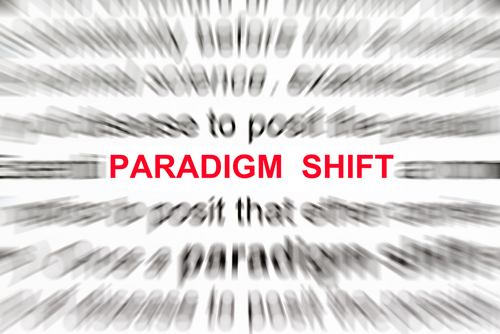In December of 1963, the leaders of the church at the Second Vatican Council issued their first statement: Constitution on the Sacred Liturgy (CSL). The church today is still living out the challenges presented in the wisdom of this document. Its contents have led us into a complex situation.
To name this situation, we can borrow a phrase originally identified in the field of science: “paradigm shift.” A “paradigm” is defined as a common understanding or a common worldview. For over 50 years now, since this document was promulgated by the Council Fathers, we, as church, have been struggling in the midst of a shifting paradigm. The CSL called us to let go of our common understanding, and see things from a different perspective. We needed to see in a new way that it is our full participation in the liturgy that makes us integral and responsible members of church. We needed to learn that it is not just about “receiving” communion. We need to BE communion.
The following paragraph from the CSL is one of the major directives from the Council that has propelled us on this journey of shifting our previous paradigm about the liturgy: “The Church earnestly desires that all the faithful be led to that full, conscious, and active participation in liturgical celebrations called for by the very nature of the liturgy. Such participation by the Christian people as ‘a chosen race, a royal priesthood, a holy nation, God’s own people’ (1 Peter 2:9; see 2: 4-5) is their right and duty by reason of their baptism.
In the reform and promotion of the liturgy, this full and active participation by all the people is the aim to be considered before all else. For it is the primary and indispensable source from which the faithful are to derive the true Christian spirit and therefore pastors must zealously strive in all their pastoral work to achieve such participation by means of the necessary instruction.” (CSL No. 14)
CSL, and the other documents of Vatican II, presented the church at large with a different way of thinking about the liturgy, and a different way of thinking about church. It takes a whole lot of time for any paradigm to shift, to take root throughout a community. Like all paradigm shifts, when the status quo is upended, individuals feel unsettled and confused for a very long time, until the new paradigm becomes the new normal.
Perhaps it would be less unsettling to think of this paradigm shift in the church as more of an expansion than a change; an expansion that unbound for many of us the beautiful truths about Jesus’ command to “do this.” Perhaps the shift simply awakened a human hunger for a fuller and more conscious participation in the mystery being celebrated, a hunger for Christ to be forever resurrected. The wisdom of the Council pushed out the walls of our understanding so that we could enter into the vastness of the mystery, enabling the seeking of spiritual questions, rather than the doctrinal answers.
Therefore, to honestly and openly settle into this new paradigm, the most important thing we can do is to each seek out, not just information about the Mass, but to participate in opportunities for further formation in the spiritual meaning of the Mass. The liturgy is so much more than we might initially think. It is a never ending journey. “Liturgy is life that forms, not an idea to be learned” (Pope Francis, February 2019 address to the Congregation for Divine Worship and the Discipline of the Sacraments). Forming small faith communities in our parishes, centered around discussion and reflection on our ritual prayer, could be an effective means to growing our spiritual understanding. “Wherever two or three are gathered in my name, their I am among them.” (Matthew 18: 20)
By virtue of our baptism, our participation in the liturgy is an ongoing recommitment to, and renewal in, the way of Christ. It is the means by which each person, and the community together, say “yes” to their part in the revelation of Christ, not just in the elements of the Eucharist, but in the actions of the Church in the world. The Eucharist nourishes the body of Christ to go out into the world and BE the body of Christ.
In February, Pope Francis reminded us that the clergy and laity alike are called to regularly reflect upon the liturgy together, working towards an ever-expanding, internal and external, full, conscious, and active participation called for by the very nature of the liturgy. If we all came to Mass with the energy and awareness of that presence, our participation could change our lives, and it could change the world around us. What are we waiting for?
Start your day with Always Forward, our award-winning e-newsletter. Get this smart, handpicked selection of the day’s top news, analysis, and opinion, delivered to your inbox. Sign up absolutely free today!

